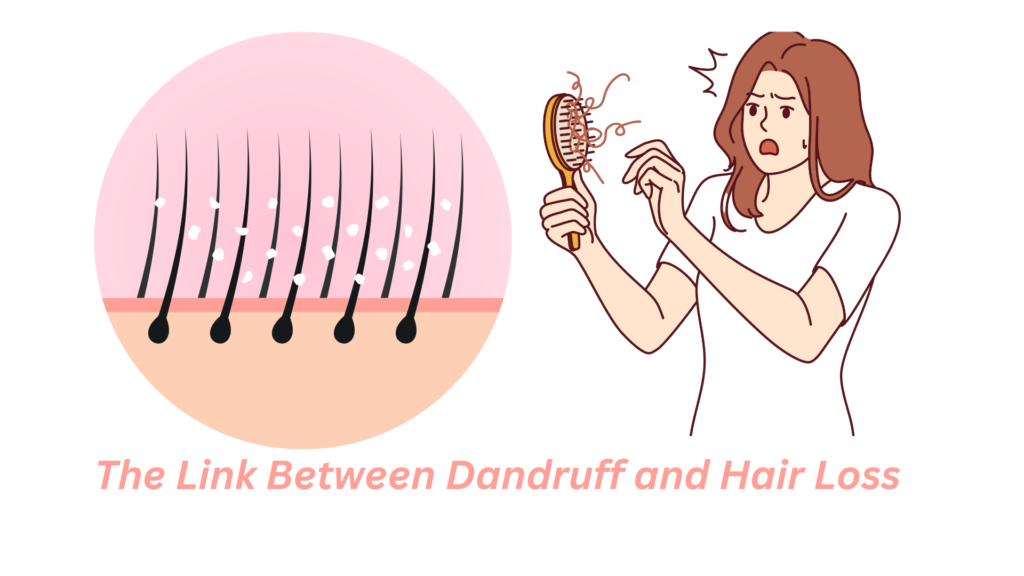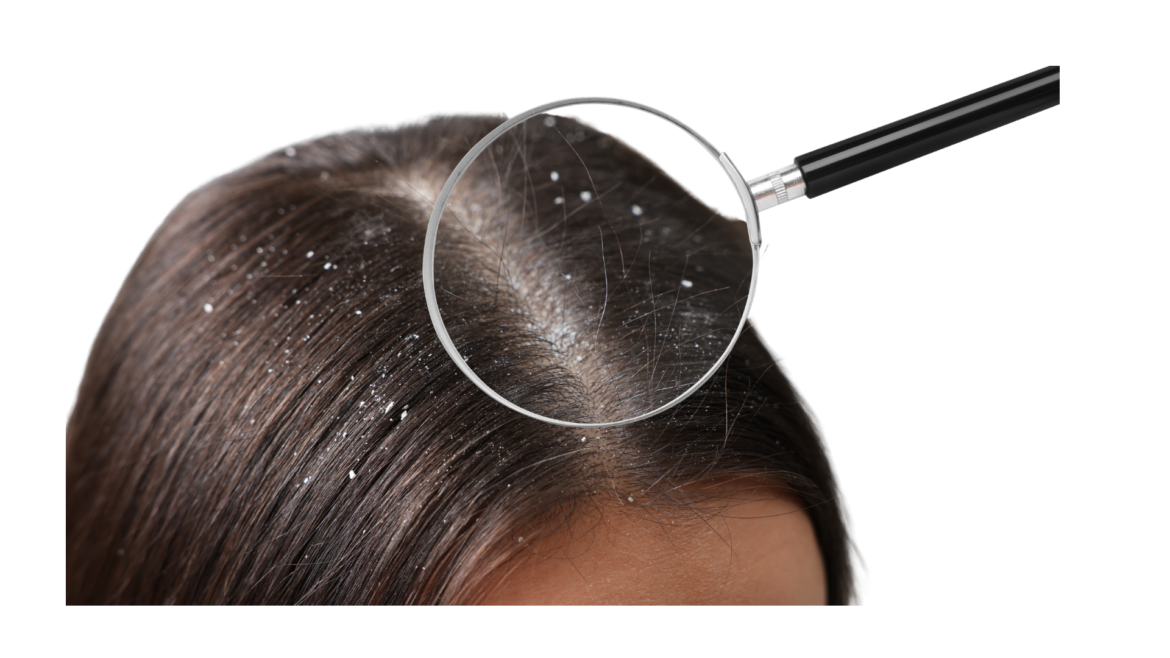Around the world, millions of people suffer from dandruff as a common condition that affects their scalp. The condition produces flaking as well as both scalp itching and skin irritation. The observation of hair loss among people with dandruff leads to the inquiry about whether dandruff actually produces hair loss. The relationship between dandruff and hair loss exists while you will learn methods of both prevention.
Understanding Dandruff
The primary reason behind dandruff is when the yeast-like fungus Malassezia grows excessively, which results in abnormal dead skin cell shedding. Four main causes of involvement lead to dandruff, including dry scalp together with product sensitivity and seborrheic dermatitis, as well as skin fungus overgrowth.
The Link Between Dandruff and Hair Loss
The physical effects of dandruff on hair do not lead to lasting hair loss, but they do increase the rate of hair shedding.

Scalp Irritation and Inflammation
Long-term dandruff triggers inflammation that generates scalp itching together with discomfort. Regular scratching damages the hair root system, thereby creating a risk of hair damage or the loss of hair follicles.
Blocked Hair Follicles
Dandruff accumulation that gets too heavy will block hair follicles, which can lessen their ability to nurture hair growth. The condition might cause momentary hair thinning throughout this period.
Weakened Hair Strands
A dry scalp that shows flakiness damages hair strands, so they become more likely to fall out irrespective of brushing or washing.
Underlying Conditions
The presence of serious dandruff symptoms could indicate either seborrheic dermatitis or psoriasis since these conditions create severe scalp irritation with higher rates of hair loss.
How to Prevent Dandruff-Related Hair Loss
Individuals can successfully manage and reactivate their hair loss caused by dandruff because this condition has a temporary nature. The following guidelines will help you prevent the dual problems of dandruff and hair fall:

Use Anti-Dandruff Shampoo
Scalp dandruff control and irritation reduction become possible through regular use of shampoos containing zinc pyrithione, ketoconazole, salicylic acid, or selenium sulfide as active ingredients.
Maintain Scalp Hygiene
The regular act of cleaning your hair removes both sebum and dry skin evacuees to stop dandruff formation. Excessive washing of your hair should be avoided because it results in dryness of your scalp.
Avoid Scratching
Scratching your scalp must be avoided because both hair follicles and hair breakage result from this behavior.
Moisturize Your Scalp
Scalp dryness as a cause of dandruff can be treated by applying natural organic remedies, including coconut oil or aloe vera, to keep the scalp moisturized.
Eat a Balanced Diet
A diet consisting of nutritious food with B, D, and E vitamins and omega-3 fats creates strong hair and healthy scalp conditions.
Manage Stress
When experiencing stress, your body may develop both patterns of dandruff and hair shedding. Yoga and meditation practices assist in controlling both dandruff and hair loss that stem from stress.
When to See a Doctor
See a dermatologist about dandruff unless treatments work against the symptoms and additional scalp conditions do not develop. A doctor can analyze any hidden health issues while suggesting proper medical intervention.
Dandruff by itself does not cause permanent hair loss, yet continued lack of treatment because of scalp irritation can result in hair falling by damaging hair follicles while causing inflammation on the scalp. Regular, proper scalp care, along with medical consultation when needed, allows you to properly regulate dandruff while shielding your hair from excessive shedding.
